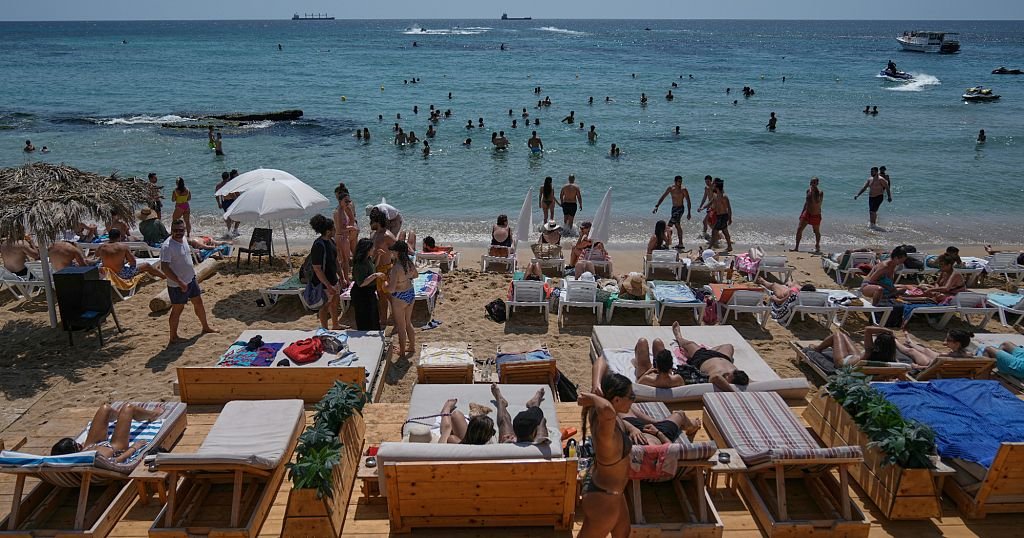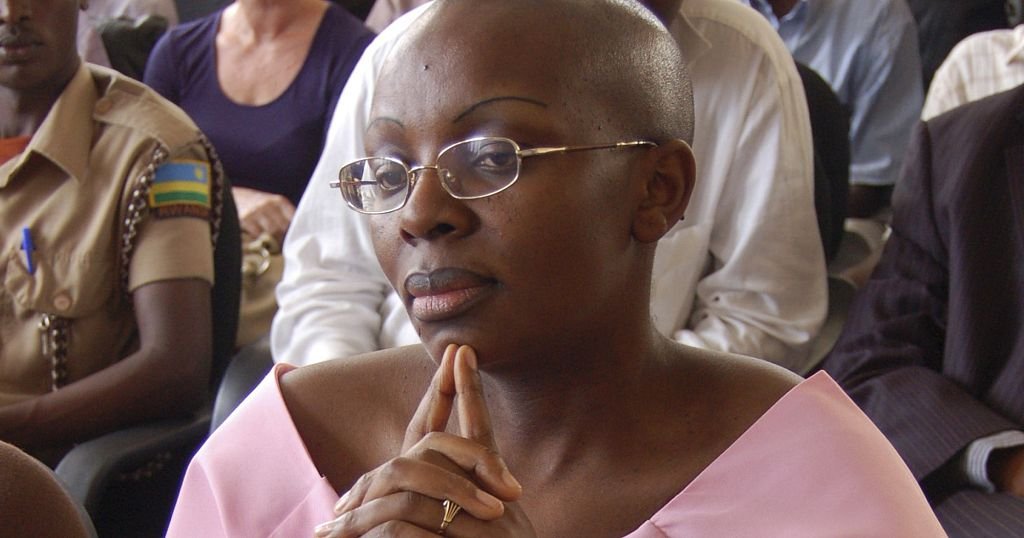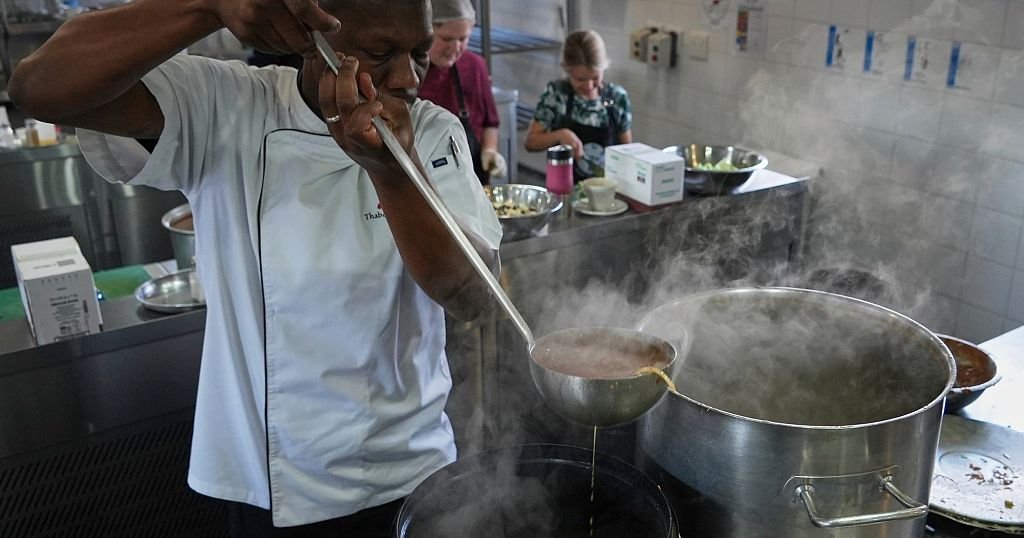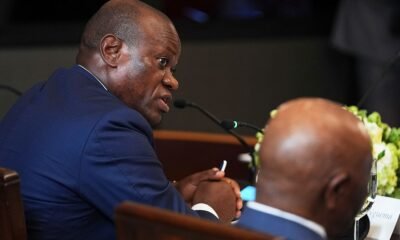Africa
In a bid to aid its economy, Lebanon hopes to return to golden age of tourism

Fireworks lit up the night sky over Beirut’s iconic St. Georges Hotel as hit songs from the 1960s and 70s filled the air in a courtyard overlooking the Mediterranean Sea.
The retro-themed event was hosted last month by Lebanon’s Tourism Ministry to promote the upcoming summer season and perhaps recapture some of the good vibes from an era viewed as a golden one for the country.
In the years before a civil war began in 1975, Lebanon was the go-to destination for wealthy tourists from neighbouring Gulf countries seeking beaches in summer, snow-capped mountains in winter and urban nightlife year-round. In the decade after the war, tourists from Gulf countries – and crucially, Saudi Arabia – came back, and so did Lebanon’s economy.
But by the early 2000s, as the Iran-backed militant group Hezbollah gained power, Lebanon’s relations with Gulf countries began to sour. Tourism gradually dried up, starving its economy of billions of dollars in annual spending.
“A new era for Lebanon”
Now, after last year’s bruising war with Israel, Hezbollah is much weaker and Lebanon’s new political leaders sense an opportunity to revitalize the economy once again with help from wealthy neighbours.
They aim to disarm Hezbollah and rekindle ties with Saudi Arabia and other Gulf countries, which in recent years have prohibited their citizens from visiting Lebanon or importing its products.
“Tourism is a big catalyst, and so it’s very important that the bans get lifted,” said Laura Khazen Lahoud, the country’s tourism minister. On the highway leading to the Beirut airport, once-ubiquitous banners touting Hezbollah’s leadership have been replaced with commercial billboards and posters that read “a new era for Lebanon.”
In the centre of Beirut, and especially in neighbourhoods that hope to attract tourists, political posters are coming down, and police and army patrols are on the rise. There are signs of thawing relations with some Gulf neighbors. The United Arab Emirates and Kuwait have lifted yearslong travel bans. All eyes are now on Saudi Arabia, a regional political and economic powerhouse, to see if it will follow suit, according to Lahoud and other Lebanese officials.
A key sticking point is security, these officials say. Although a ceasefire with Israel has been in place since November, near-daily airstrikes have continued in southern and eastern Lebanon, where Hezbollah over the years had built its political base and powerful military arsenal.
Rebuilding not just tourism – but everything else, too
As vital as tourism is — it accounted for almost 20% of Lebanon’s economy before it tanked in 2019 — the country’s leaders say it is just one piece of a larger puzzle they are trying to put back together. Lebanon’s agricultural and industrial sectors are in shambles, suffering a major blow in 2021, when Saudi Arabia banned their exports after accusing Hezbollah of smuggling drugs into Riyadh.
Years of economic dysfunction have left the country’s once-thriving middle class in a state of desperation.
The World Bank says poverty nearly tripled in Lebanon over the past decade, affecting close to half its population of nearly 6 million. To make matters worse, inflation is soaring, with the Lebanese pound losing 90% of its value, and many families lost their savings when banks collapsed.
Tourism is seen by Lebanon’s leaders as the best way to kickstart the reconciliation needed with Gulf countries – and only then can they move on to exports and other economic growth opportunities. With summer still weeks away, flights to Lebanon are already packed with expats and locals from countries that overturned their travel bans, and hotels say bookings have been brisk.
On a recent weekend, as people crammed the beaches of the northern city of Batroun, and jet skis whizzed along the Mediterranean, local business people sounded optimistic that the country was on the right path. “After having been through a war that weighed heavily on all Lebanese people, and after years of being boycotted by the Arabs and our brothers in the Gulf, we expect this year for us to always be full as you can see,” said Jad Nasr, co-owner of a private beach club. “We’re expecting tourism to be very strong this year. When we talk to travel agencies, they all tell us that they’re fully booked, and all airlines are fully booked to Lebanon, there are no tickets to book”, he said.
Africa
Rwandan opposition leader Victoire Ingabire denied bail

Rwandan opposition leader Victoire Ingabire will remain in detention after judges at the Kicukiro Primary Court in Kigali denied her bail on Tuesday. The court cited the risk of flight and possible interference with an ongoing investigation as grounds for keeping her in pre-trial custody.
Ingabire, a prominent critic of President Paul Kagame, faces six charges, including forming or belonging to an illegal group and spreading hate messages intended to provoke international opinion against the government. Prosecutors argue that the evidence is strong enough to justify her continued detention while investigations proceed.
The charges are connected to the 2021 arrests of several of her supporters who had participated in an online political training session. Authorities allege that during the session, participants discussed a book titled “How to Topple a Dictator When You’re Alone, Small, and Unarmed,” which they claim indicates intent to incite unrest.
Ingabire has denied all accusations and previously called the charges politically motivated. She has long been one of the few opposition figures to remain politically active inside Rwanda, while many others have gone into exile. She was imprisoned in 2010 after returning from years in exile in the Netherlands and was later released under a presidential pardon in 2018.
Her latest legal troubles come as rights groups continue to raise concerns about political repression and the shrinking space for dissent in Rwanda. Ingabire’s next court appearance is scheduled for July 15.
Africa
Atlas Lionesses roar into Afcon semi-finals, sparking celebrations in Rabat

Fans poured out of Rabat’s Olympic Stadium in high spirits on Sunday evening, following Morocco’s 3–1 win over Mali in the Women’s Africa Cup of Nations. The victory secured the Atlas Lionesses a spot in the semi-finals and brought waves of celebration to the capital.
Supporters gathered in large numbers, singing, waving flags, and expressing pride in the national team’s performance. For many, the win was about more than just football. It was a moment of national unity and progress.
“Honestly, we’re so happy. It was a great match. It really shows how much work has gone on behind the scenes,” said one enthusiastic fan. “God willing, we want even more in the semi-finals and the final.”
Among the excited crowd was the brother of one of the players, who shared an emotional reaction to the match.
“They played a really great game, there was so much intensity,” he said. “I also want to give a shoutout to my sister, Imène El Ghazouani, who made a strong performance even though she came on late in the second half.”
The focus now shifts to the semi-finals, where Morocco will face either Algeria or Ghana in a highly anticipated showdown. Beyond a place in the final, the stakes are even higher. The winner will earn a coveted spot in the 2027 FIFA Women’s World Cup in Brazil.
For the Atlas Lionesses, the dream continues, and the nation is proudly standing behind them.
Africa
Cooks spice things up for soup challenge as South Africa marks Mandela Day

Dozens of chefs, community cooks, caterers, and culinary students are rolling up their sleeves in kitchens across South Africa this Mandela Day, united by one mission: fighting hunger, one pot of soup at a time.
Since 2009, South Africans have honoured Nelson Mandela’s legacy by volunteering 67 minutes of their time, one for each year he dedicated to public service. This year, a group of volunteer cooks is going big, aiming to prepare 67,000 litres of soup to feed the country’s most vulnerable.
“In our first year, I think 2020, we already exceeded the 67,000 litres,” said Hanneke Van Linge, Head of Nosh Food Rescue. “Last year, we did 104,000 litres in one day. Hotels, culinary schools, feeding schemes — they’re all cooking with rescued, donated produce and putting in as many litres as they can.”
The initiative is led by the NGO Chefs with Compassion, founded during the COVID-19 lockdown. Executive chef and chairman James Khoza said the rising cost of food and high unemployment are fuelling the country’s hunger crisis.
“If you look at prices, they’ve gone through the roof,” he said. “Mandela Day highlights hunger, poverty, and shows that chefs like us can do something meaningful.”
Despite being one of Africa’s top food producers, over 20 million South Africans go hungry daily, according to the 2024 National Food and Nutrition Security Survey. At the same time, 10.3 million tons of food are wasted annually, a crisis driven by poverty, inequality, and climate change.
-

 Lifestyle5 days ago
Lifestyle5 days agoA rap festival near the Arctic Ocean delights crowds under the midnight sun
-

 Europe4 days ago
Europe4 days agoTrump’s 50-day shift on Ukraine is a big deal — but probably not for Putin
-

 Lifestyle4 days ago
Lifestyle4 days agoRoman era mosaic panel with erotic theme that was stolen during World War II returns to Pompeii
-

 Asia4 days ago
Asia4 days agoThai police arrest woman who allegedly seduced and blackmailed Buddhist monks
-

 Europe4 days ago
Europe4 days agoAmerican accused in murders of mother and baby appears before Italian judge after extradition
-

 Europe3 days ago
Europe3 days agoEmma Watson, ‘Harry Potter’ star, banned from driving for six months
-

 Africa3 days ago
Africa3 days agoCommonwealth lifts Gabon’s partial suspension following April presidential vote
-

 Asia4 days ago
Asia4 days agoJacinda Ardern Fast Facts | CNN




